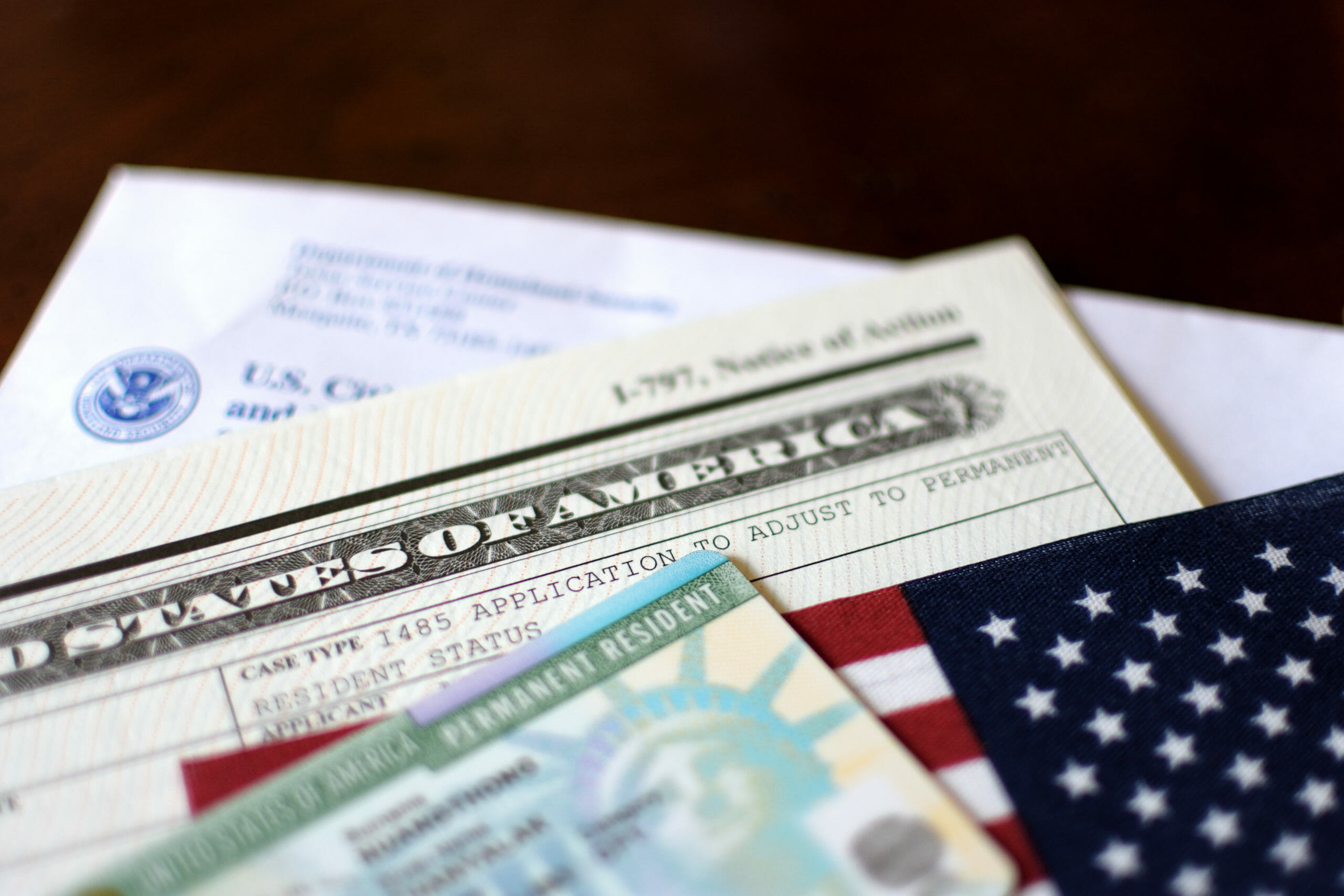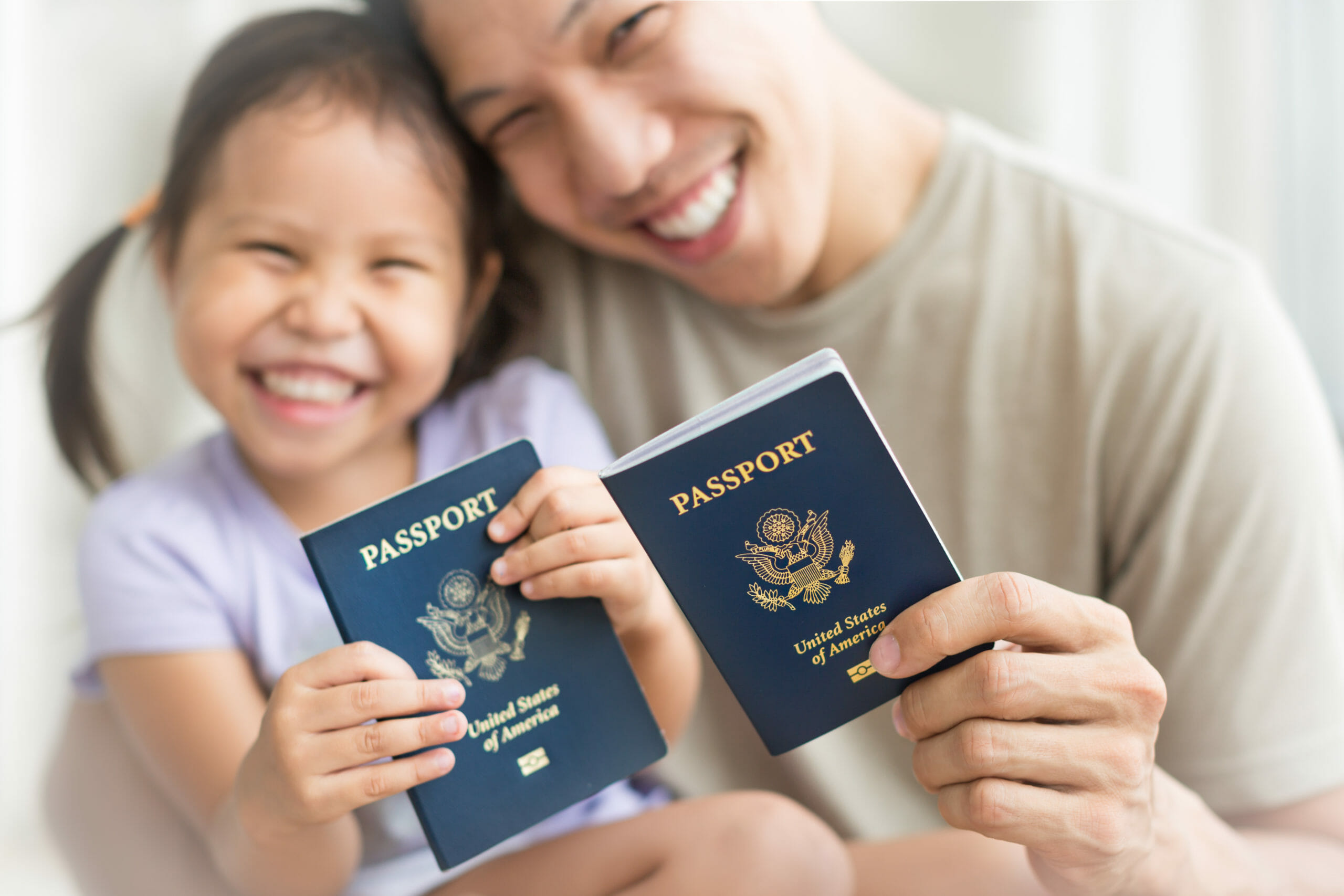U.S. Citizenship and Immigration Services (USCIS) just released a tranche of new immigration data and statistics covering the final quarter of fiscal year 2019, from Jul. 1 to Sep. 30.
The quarter’s statistics are a mixed bag. The number of pending green card applications decreased compared to the previous year, but thousands more green card applications were denied. Read on for key statistics and our analysis of the figures.
A busy year for immigration

USCIS officers were kept busy in FY 2019, with the agency receiving more than 7.6 million immigration forms in the course of the year, and approving almost 6.5 million requests.
During fiscal 2019, the agency received:
* 333,695 family-based green card applications;
* 187,414 requests to remove conditions on 2-year green cards;
* 403,102 requests for advance parole documents; and
* 90,448 applications for reentry permits
USCIS also received nearly 2.2 million employment authorization applications, and processed more than 40 million cases through E-Verify.
The agency made significant progress in some areas, with decreases in pending applications suggesting that USCIS might finally be making headway against longstanding application backlogs. But there are also some troubling signs, including higher denial rates for family-based green cards.
Let’s take a closer look:
GREEN CARDS

Overall, USCIS issued nearly 577,000 green cards in FY 2019, and reduced the number of pending applications by 14%.
* Family green cards
A total of 68,205 I-130 petitions were received in the final quarter of 2019, with more than 94% being for immediate relatives. In total, officials denied 11% of adjudicated petitions in the immediate relative category, and 14.6% of adjudicated petitions on behalf of other relatives. More than 1.4 million I-130 petitions are still pending, including almost 400,000 petitions on behalf of immediate relatives.
In addition to the I-130 filings, USCIS received 95,484 family green card applications in the final quarter of 2019, up more than 15,000 from the same period a year earlier. The agency approved 87,104 applications, also up just over 15,000 from a year earlier, and denied 15,774 applications, up more than 4,300 from Q4 2018. In total, 15.3% of adjudicated applications were denied in Q4 2019, up from 13.7% one year previously.
The number of pending family green card applications fell to 322,100, down from 372,185 a year previously.
* Employment green cards
There were 26,433 applications for employment-based green cards in the final quarter of FY2019, down sharply from 32,530 in the same period a year previously. In total, officials approved 13,709 employment green cards, down from 16,102 the previous year.
A total of 2,962 applications were denied, about the same as in Q4 2018. Overall, 17.8% of adjudicated employment green card applications were denied, up from 15.3% during the same period in 2018.
The number of pending employment-based green card applications fell to 147,252, down from 161,023 in Q4 2018.
* Humanitarian green cards
USCIS received 22,631 applications for green cards on humanitarian grounds, down from 25,478 a year previously. Just 19,411 humanitarian green cards were approved, down from 44,151 in the final quarter of 2018, and the number of denials climbed slightly to 1,663.
In total, 7.9% of adjudicated humanitarian green card applications were denied, more than double the 3.3% denial rate seen a year previously.
The number of pending humanitarian green card applications fell to 74,749, down from 102,577 in Q4 2018.
NATURALIZATION

USCIS naturalized 834,000 new citizens in FY 2019 — the highest total for 11 years.
In the final quarter of the year, a total of 230,340 applications for naturalization were received, up almost 20,000 from the previous quarter and up more than 14,000 from the same period in 2018. The number of approvals also rose to 247,246, up from 210,345 in the previous quarter and 216,105 a year previously.
The number of pending N-400 applications edged downwards to 647,576, a modest decrease from the 685,257 pending applications in Q3 and a significant improvement on the 738,148 applications pending in Q4 2018.
Denials held steady at 25,867, barely higher than the 25,528 in the third quarter or the 25,846 denials in the final quarter of 2018. Nationwide, just under 9.5% of adjudicated N-400 applications were denied — a slight improvement on the 10.7% denial rate during the same period in 2018.
Interestingly, the denial rate varied considerably by region. In both Imperial, CA, and San Juan, Puerto Rico, around 19% of adjudicated applications were denied, while in Anchorage, Alaska, more than 20% of applications were denied. And the worst place in the country to seek citizenship? That would be Helena, Montana, where a full 50% of adjudicated naturalization applications were denied in Q4 2019.
DACA

The government’s figures highlight the stakes as the Supreme Court weighs the future of the Deferred Action for Childhood Arrivals program. A total of 825,439 people have sought DACA status since the program began, and 652,880 remain in DACA status.
Very few new DACA applications are now being filed — just 1,570 initial applications were filed in fiscal 2019, down sharply from 45,637 in 2017 and 443,967 in 2013. But the program is still very much alive: a total of 406,592 requests for renewal of DACA status were filed in 2019, at a rate of more than 1,526 applications per day.
What do these numbers mean for you?
It’s always good to see a decline in the number of pending cases, since that means shorter lines for new applicants and leaves USCIS officers with more bandwidth to handle freshly submitted applications.
On the other hand, any increase in the rate at which applications are being denied is cause for concern. With the public charge rule still pending and new restrictions being introduced at a breakneck pace, it’s reasonable to assume that the bar for new green cards, and perhaps also naturalization, will only get higher in coming months.
Of course, we’ll keep you updated on all the latest news that could impact your immigration journey. But if you’re ready to start your green card or naturalization application then don’t delay — get in touch today to begin the process.